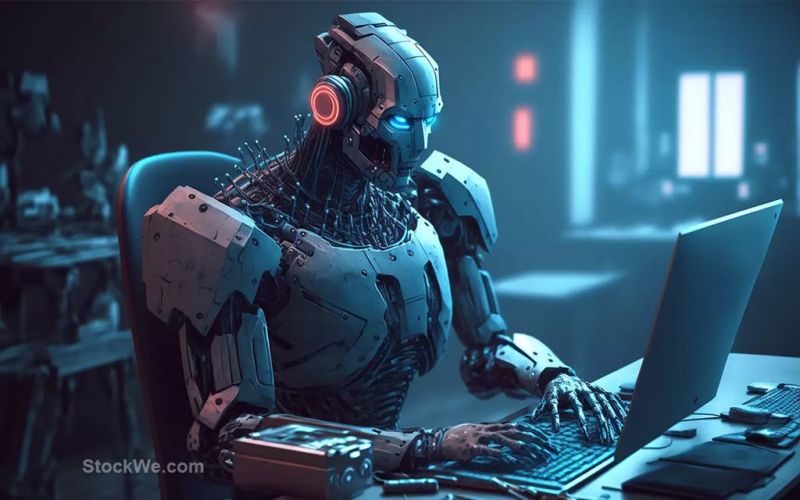
According to the authoritative financial media "Financial Times" recently reported that with the continuous heating up and wide application of AI technology, especially the vigorous development of chatbots, generative AI and other frontier fields, the market demand for efficient and low-cost AI reasoning computing power has risen sharply. This trend undoubtedly provides unprecedented opportunities for those emerging chip companies eager to break Nvidia's monopoly. A host of start-ups, including Serebras Systems, Grock and d-Matrix, are challenging Nvidia's dominance with huge funding and innovative technology.
Serebras, an up-and-coming startup in the field of AI chips, recently announced the arrival of its new "Serebras Inference" platform, which is centered on its innovative CS-3 chip. This chip with its unique architecture design - the memory is directly built into the chip wafer, greatly improving the speed and efficiency of data processing, it is said to be 20 times faster than Nvidia Hopper series Gpus when processing AI inference tasks, while the cost is only a fraction of the latter. This disruptive breakthrough not only highlights Serebras' deep expertise in technology, but also wins it a place in the AI chip market. Andrew Feldman, the company's chief executive, said confidently in an interview with the Financial Times: "The key to beating the industry giants is to bring products to market that are far superior to their peers. We believe that with the superior performance of the CS-3 chip, we have successfully attracted a large number of customers who previously belonged to Nvidia."
At the same time, d-Matrix is also gearing up for the full launch of its Corsair chip platform. In less than a year, the company, founded by Sid Schet in 2019, has successfully raised $110 million in a Series B funding round led by renowned investors such as Temasek. Today, they are planning to raise more than $200 million through a new round of funding to accelerate product development and marketing. Schetter emphasized that the Corsair chip platform will be committed to deep integration with the open software ecosystem, especially the Triton software that competes effectively with Nvidia's CUDA platform to provide users with more flexible and efficient AI solutions.
Grok, as another high-profile AI chip startup, has a star-lined team behind it, including former core members of Google's tensor processor (TPU) team. Recently, the company successfully raised a huge amount of capital of $640 million from well-known investment institutions such as BlackRock Private Equity Partners, which undoubtedly injected strong impetus into its research and development and market expansion in the field of AI chips. With its deep technical heritage and forward-looking market layout, Grok is gradually building up its unique advantages in the AI chip market.
However, it is worth noting that although these start-ups have shown strong vitality and competitiveness in the field of AI chips, the cruel reality of the semiconductor industry cannot be ignored. As one venture capitalist put it, despite the seemingly boundless AI chip market, there are still many challenges for startups to break into this market. Factors such as high technical threshold, large R&D investment, and fierce market competition all make this road full of unknowns and variables. Previously, the case of Graphcore chip company being acquired by SoftBank Group at a price lower than its total financing over the years has sounded the alarm for the entire industry - even enterprises with potential can not completely avoid the impact of market volatility and capital will.
Whether start-ups such as Cerebras, Grok and d-Matrix can maintain their innovative vitality and market competitiveness depends not only on their own technical strength and product advantages, but also on their keen market insight and flexible strategic adjustment ability. At the same time, for the entire AI chip industry, the rise of these emerging forces will also further promote the diversification and competition of the market, and inject new vitality and momentum into the healthy development of the entire industry.

Amidst the global wave of technological transformation, artificial intelligence (AI) has become a key focus of competition among major tech giants.
Amidst the global wave of technological transformation, art…
In January 2026, the remarks by US Treasury Secretary Besse…
Less than three weeks into 2026, transatlantic trade relati…
On January 17, 2026, the Trump administration, under the pr…
When Musk set the goal of achieving a launch frequency of m…
A week after the largest nationwide protests in years, the …